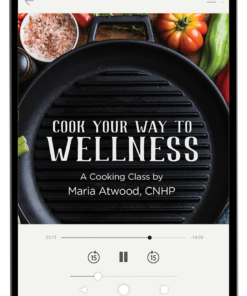I was recently obliged to stay at home all day Sunday with only myself and a snoozing cat! All my nicely organized church plans were necessarily canceled due to it being one of the most cold, snowy, icy days to date. Driving anywhere was simply not an option. I was simply paralyzed as I took off my coat and hat, knowing I wouldn’t be doing my usual Sunday sprint. All that unplanned time ahead of me put me in an almost hypnotic trance, and I had a sense this would be an eternal day. The fact that it was a Sunday made it even more difficult. Sunday is a special day that I habitually observe by going to church and sometimes spending a little time with my fellow parishioners. In other words, I stay busy doing non-work endeavors such as visiting a sick friend, and I don’t do any shopping. All the while I think I’m observing a day of rest because I’m not checking or responding to my email or doing other minor work-related tasks. Nothing like a little self-deception, huh?
Realizing I was homebound, I needed to do something—anything—so I immediately set about to cook a healthy, leisurely breakfast. I’d simply rest as best I could, even though I was relatively tense and felt like a fish out of water. I was truly grateful to see nightfall, and I promised myself to never endure another day of rest like this one! It was truly boring, to say the least.
Yet as the days passed, and I thought of how uncomfortable and bored I was just trying to rest, it gave me real pause. I wondered, what is a “day of rest?” Especially, what does a day of rest mean for those who don’t follow a structured religious observance as set out in the Ten Commandments—a day that’s related specifically to the worship of God?
I also wondered if there are any real physical benefits to resting (very little activity one day a week) besides nourishing our spiritual side? If so, what are those benefits? Because I want to be sure I never have another boring Sunday, I searched for answers. I’ve come to realize that, like many others, I am addicted to motion. Many of us aren’t able to simply rest peacefully for any length of time. Unfortunately, in our frenzied culture we’ve made a habit out of being too busy. The very thought of taking 12–24 hours of real rest seems impossible because we routinely have too many demands and responsibilities. Having too much to do and too much urgency also makes us impatient. Nobody, it seems, can afford to waste time resting in today’s results-oriented world.
Nevertheless, I studied the philosophers of yesteryear, who tell us that time to reset is essential for the mind: “Every now and then go away, have a little relaxation, for when you come back to your work your judgment will be surer.” —Leonardo da Vinci “Take rest; a field that has rested gives a bountiful crop.” —Ovid, the Roman poet Your mind requires rest. But somewhere along the way, we lost the essential practice of concentrated rest. I have found the suggestions and findings below valuable for myself, and hopefully they will be for you also.
- Plan your rest. Rest will come only from intentional planning, and planning rest will come only if it is truly desired. Schedule it on your calendar.
- Learn to say no to any tasks that attempt to take precedent.
- Plan out your day of rest with creative activities that refresh and quiet the body, mind, and spirit.
- Understand that true rest is not the same as just not working. As the Cat in the Hat wisely said, “It is fun to have fun. But you have to know how.”
- Avoid housework.
- Plan meals in advance to help alleviate cooking responsibilities. And by all means, turn off your television, don’t check your email, and don’t answer your phone.
In a New York Times opinion piece called “The ‘Busy’ Trap,” Kreider also writes: “The space and quiet that idleness provides is a necessary condition for standing back from life and seeing it whole, for making unexpected connections and waiting for the wild summer lightning strikes of inspiration—it is, paradoxically, necessary to getting any work done.”
Now that we know the six most important steps to a restful day, let’s start planning so we won’t be at the mercy of having nothing to do—or too much to do! I’ve discovered how to have restful days, so my future Sundays, even if I’m home alone all day, will truly be as restful as possible. If I’m too busy, I’ll choose another day of the week to really rest, and/or do it much more frequently than I now do. My hope is that it will give me the benefits guaranteed by the experts and prepare me for success in the week that follows, all because I took advantage of a day of rest.
For those restful days ahead, I’d like to share with you one of my favorite relaxing supplements and offer a few easy, fix-ahead meals to freeze and have ready.
Supplementation: The most natural way to wind down from a super hectic week may be to take one of nature’s most powerful herbs. Kava Forte from MediHerb is one such safe, healthy way to be relaxed while still being alert. Now here are some make-ahead freezable recipes for your rest day.
Easy Mushroom Soup
—from Nourishing TraditionsIngredients
2 medium onions, peeled and chopped
3 tablespoons butter
2 lbs. fresh mushrooms
4 tablespoons butter or ghee
4 tablespoons extra virgin olive oil
½ cup dry white wine or sherry
1 piece whole grain bread, broken into pieces (omit for paleo or low carb diets)
1 quart chicken stock
Pinch nutmeg
Sea salt or fish sauce and pepper
Heavy cream, sour cream, piimä cream, or crème fraîche (1 cup total if you’re blending it into the soup)
Instructions
- Sauté the onions gently in butter until soft. Meanwhile, wash mushrooms and dry well. Cut into quarters.
- In a heavy, cast-iron skillet, sauté the mushrooms in small batches in a mixture of butter and olive oil.
- Remove with slotted spoon and drain on paper towels.
- Add sautéed mushrooms, wine or sherry, bread, and chicken stock to onions. Bring to a boil and skim.
- Reduce heat and simmer about 15 minutes.
- Purée soup with a handheld blender.
- Add nutmeg and season to taste.
- Ladle into heated soup bowls and serve with cultured cream.
Melt in Your Mouth Pot Roast
—from Nourishing TraditionsIngredients
3 lbs. rump roast, chuck roast, or other cut suitable for pot roast
1 quart buttermilk
2 tablespoons butter
2 tablespoons extra virgin olive oil
1 cup red wine
2 cups homemade beef stock
Several sprigs thyme, tied together
½ teaspoon green peppercorns, crushed
1 dozen small red potatoes
1 lb. carrots, peeled and cut into sticks
2 tablespoons arrowroot mixed with 2 tablespoons filtered water
Salt and pepper
Instructions
- Using a needle or skewer, stick the meat all over.
- Place in a bowl or glass loaf pan just large enough to contain the meat and pour buttermilk over it.
- Allow to marinate in the refrigerator, turning occasionally, for several days.
- Remove from buttermilk and dry off meat with paper towels.
- In a heavy, flameproof casserole, brown meat on all sides in butter and olive oil.
- Remove meat from casserole and pour out browning fat. Add wine, stock, thyme, and peppercorns. Bring to a boil and skim.
- Return pot roast to casserole and bake at 300°F, covered, for several hours, or until tender.
- One hour before serving, add potatoes and carrots.
- Remove meat and vegetables to a platter and bring sauce to a boil on the stove. Spoonful by spoonful, add arrowroot mixture until desired thickness is obtained. Season to taste.
Foods That Promote Relaxation
While digging into my food notes, I found these great foods that promote relaxation. Prepare them ahead of time and include in your “Resting Day Recipe File.”Lentils: You might not automatically think of lentils when you think of eating for comfort, but lentils have something in abundance that a lot of unhealthy foods don’t. They contain a large amount of folate, which is generally good for you. Lentils are also essential in the production of dopamine, a pleasure-inducing chemical. Dopamine is released in the brain as a way of helping you cope with stressful situations and recover from pain. You’ll find lots of folate in green vegetables, and also in sunflower seeds if you’re looking for a stress-busting snack.
Chamomile tea: It might be a wonder drink rather than a wonder food, but chamomile tea certainly deserves a mention in any stress-busting list. This age-old tonic for stress and depression has achieved its reputation with good reason. Each cup contains a large amount of flavonoids, which produce a relaxing effect throughout the body and leave you feeling soothed. For the best results, drink some strong chamomile tea before sleeping.
Oatmeal: When we’re stressed, our body naturally craves more carbohydrates. Lots of carbs are necessary to produce serotonin, which is our body’s main calming chemical. Without enough serotonin, you can be left feeling permanently on edge. But that doesn’t mean you have to resort to unhealthy sources of carbs, such as potato chips. Oatmeal is a great way to get the carbohydrates you need and maintain a healthy diet. Oats contain lots of healthy fiber as well as protein. In fact, Roman gladiators used to eat oatmeal each day to boost their strength before a fight.
AUTHOR’S NOTE To choose your organically grown and fresh ingredients wisely, use the following criteria:
- chemical- and hormone-free meat
- wild-caught fish
- pasture-raised, organic eggs
- whole, unrefined grains
- virgin, unrefined, first-press organic oils
- whole-food, unrefined sweeteners
- pure, clean, spring water
- sea salt
- raw and/or cultured milk and cream products


